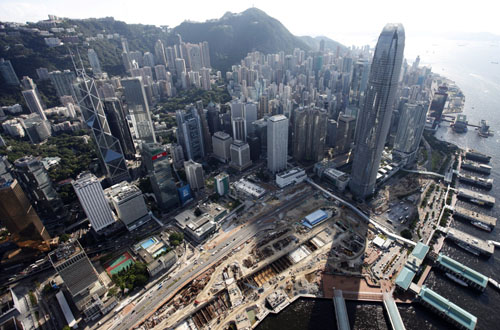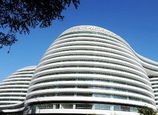
 |
| Skyscrapers tower over Hong Kong's Central district, where commercial rental prices are some of the highest in the world. (Photo/China Daily) |
Skyscrapers tower over Hong Kong's Central district, where commercial rental prices are some of the highest in the world. Provided to China Daily
Preventing an attack on the local currency is one thing. But avoiding property overheating is another, as Gao Changxin reports from the SAR.
Leung Fung-yee, undersecretary for financial services and the treasury of Hong Kong, has tried to strike a note of reassurance by telling China Daily that the city's financial system is sound enough to withstand the current capital inflows and a potential outflow.
But her words seem barely sufficient to quiet public fears of bigger asset bubbles, especially one in the property market, as memories are still fresh of the megafund inflow in 2009 after the global financial crisis, which gave rise to Hong Kong' elevated asset prices today.
Since October, central bankers in Hong Kong have been working their tails off to maintain the Hong Kong dollar's peg to the US dollar, as strong fund inflows put upward pressure on the local currency.
Most recently, on Nov 2, the Hong Kong Monetary Authority stepped into the money market for the 10th time in less than a month by selling HK$5.038 billion ($650 million) as the local currency hit the strong end of its trading range.
Hong Kong pegs its currency at 7.8 to the US dollar, but allows it to trade between a band of 7.75 to 7.85. Under the arrangement, the HKMA is mandated to step in when the Hong Kong dollar hits 7.75 or 7.85 to keep the band intact.















 'Gangnam style' life of young rich in Chongqing
'Gangnam style' life of young rich in Chongqing


![]()
